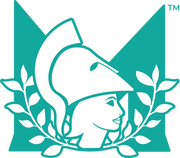Introduction: The Rise of ASC-Based Urologic Care
As outpatient care continues to grow, many urology professionals and ASC administrators are asking: "Which procedures can safely be performed in a freestanding ambulatory surgery center?" This post provides practical guidance - no hype, just clear criteria, examples, and actionable insights to help you make informed decisions.
Why Perform Urology Procedures in ASCs?
Ambulatory surgery centers offer several advantages:
-
Lower facility fees compared to hospitals
-
Faster patient discharge and turnaround
-
Less exposure to hospital-acquired infections
-
A more streamlined experience for routine urology surgeries
Healthcare guidelines from organizations like CMS and ASCA support outpatient care for many common urology procedures.
Criteria for Urology Procedures Suitable for ASCs
Key factors that make a urology procedure ASC-appropriate:
-
Quick (often under two hours)
-
Minimal blood loss or complication risk
-
Performed using local or moderate sedation - not full general anesthesia
-
Same-day discharge with minimal monitoring
-
Ability to meet strict sterile protocols
Urology Procedures Commonly Done Safely in ASCs
These procedures are frequently performed in freestanding ASCs without compromising patient safety:
-
Cystoscopy (diagnostic or minor intervention)
The standard exam of the bladder and urethra using rigid or flexible scopes. -
Vasectomy
Quick outpatient sterilization procedure under local anesthesia. -
Ureteroscopy with Laser Lithotripsy or Stone Retrieval
Used for treating kidney or ureteral stones. Requires specialized instruments and imaging support. -
Prostate Biopsy (TRUS‑guided)
Tissue sampling under ultrasound guidance, with minimal anesthesia required. -
Shock Wave Lithotripsy (ESWL)
A non-invasive stone treatment performed while the patient is awake or lightly sedated. -
Minor Urogynecology or Pediatric Urology Procedures
Examples: pessary fitting, meatotomy, or small endoscopic evaluations. These are suitable when equipment and trained staff are available.
What You Need for Safe ASC Urology
ASC readiness involves:
-
Rigorous patient selection (healthy patients, low sedation risk)
-
High-quality sterile instruments - disposable or reusable - as appropriate to procedure
-
Staff trained in urology-specific protocols and infection prevention
-
Proper infrastructure: imaging, anesthesia/pain management, and sterile processing capabilities
Suppliers like Minerva Health Solutions offer a range of instruments tailored for ASC requirements.
Case Example (Generic): Moving Stone Cases to ASC
Some ambulatory centers have moved kidney stone procedures into their outpatient operations. Using tools like medical-grade laser systems and stone retrieval forceps, and with proper patient screening, these centers have successfully transitioned stone cases without increasing readmission or complication rates.
FAQs: ASC urology at a glance
Q: Which urology surgeries are safe in ASCs?
A: Routine, minimally invasive procedures like cystoscopy, vasectomy, ureteroscopy, prostate biopsy, and ESWL are commonly handled in ASC settings.
Q: What’s not safe for ASCs?
A: Major surgeries requiring general anesthesia or overnight stay - such as radical prostatectomy or nephrectomy - still belong in the hospital.
Q: Are ASC outcomes as safe as hospitals?
A: Yes in well-equipped centers with the right protocols and patient selection, safety outcomes are comparable.
Conclusion: Is Your ASC Urology-Ready?
Freestanding ASCs are well-positioned to expand into outpatient urology, thanks to minimally invasive techniques and streamlined workflows. By using the right procedures, equipment, and staffing protocols - and partnering with reputable suppliers - you can enhance patient satisfaction and efficiency without compromising safety.
Next Steps: Equip Your ASC with Expert Tools and Guidance
Suppliers like Minerva Health Solutions specialize in providing ASC-ready urology instruments, from scopes to retrieval forceps.
Whether you're starting with cystoscopy or expanding into stone removal, they offer quality products and support your ASC needs.
Want help mapping your ASC’s next expansion in urology?
Reach out for expert advice and product guidance.


